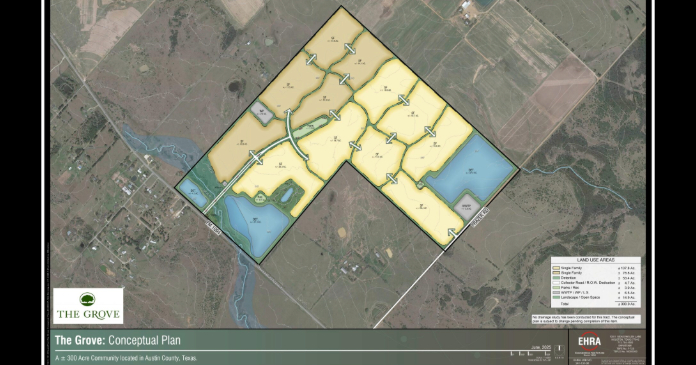The $155-billion-plus apartment industry is poised to capture significant upside from a confluence of market conditions that exist today. Apartment occupancy is being buoyed by the growing number of would-be home buyers with marginal credit who are staying in their apartments because they cannot pass lenders’ more stringent scrutiny since last summer’s subprime mess and the flood of homeowners who are losing their homes to foreclosure are returning to the rental pool with damaged credit.
In addition, two new demographics of renters are converging on the market–the 83 million strong echo boomers and an immigrant population that in the next 20 years is expected to pass the high-water mark reached by foreign born coming to the U.S. more than a century ago.
Both demographics often have little or no established credit. How can apartment companies capitalize on this potential windfall, while reducing the risks posed by a larger number of less-qualified applicants?
According to the National Multi Housing Council, as much as two percent to five percent of rental revenue is lost each year from residents who skip, write bad checks or damage property. Weeding out the credit nightmares from the credit-worthy and helping to recover the $3 billion to $5 billion lost to bad renters each year was one of the problems the founders of Atlanta-based RentBureau sought to solve when they launched the company three years ago.
It was Chairman Evan Jennings, drawing on his 30 years experience as an apartment broker, developer and entrepreneur, who had the Aha! moment that became the catalyst for the creation of a credit bureau, or Consumer Reporting Agency (CRA), for rental data, said President and CEO Eric Hartz, who prior to launching RentBureau served as founding member, president and board director of Security First Network Bank, one of the world’s first Internet banks.”Jennings said, “It’s crazy that we lose money when we rent to people and we don’t look at their rental histories, when that’s probably the best predictor of how they are going to pay rent,'” said Hartz.
Together with Chief Operating Officer Harold Solomon, who previously launched technology investment fund Seraphim Partners and served as CEO of Telekey Inc, one of the nation’s first prepaid long distance telephone companies, and Chief Technology Officer Peter Hoeve, co- founder of Onyx Technologies, a credit-scoring service for the cellular industry and leader in creating solutions for storage and access methodologies for large-scale data bases, they created a database that would allow apartment companies to use rental histories in their screening processes.
Most large multifamily companies rely on resident screening companies to check backgrounds of potential renters. Those screening services collect and store information from court records, police blotters, and credit bureaus to help identify risky residents. “But what they don’t have is how that person has paid their rent, previously month- to-month and so forth. Our rental history data helps screening companies provide a much fuller picture that the apartment companies can use to make a much better decision. If you could look and see that an individual had skipped on his or her rents in the last six or 12 months, you wouldn’t really care how good the credit is, even if the criminal record is clean and everything else looks good. You don’t want to rent to a skipper, so that’s a very clear decision to make and that data didn’t exist until we brought it to the table,” said Hartz.
Not only does RentBureau’s data help to catch risky rental applicants, but it also helps identify very good residents, said Hartz. One of the most important pieces of a potential resident’s credit check is a credit history with one or more of the big three credit reporting agencies: Experian, TransUnion and Equifax. But many prospective residents fall under those bureaus’ radars because they haven’t established the traditional pieces of credit collected by those companies and used in their scoring model. “Around 25 percent of rental applicants have no credit records. By using our data, companies can see that these same people have been paying rent on time every month and are a reasonable risk to take even if they have weak or no credit,” said Hartz, who believes access to his company’s data can cut the industry’s current rate of bad debt in half.
“Our analysis, based on input from different apartment companies, shows that they average about $3,000 to $4,000 in losses per incident, including property repairs, lost rent and employee time to pursue it. And we found analysis that says for a 30,000-unit apartment company, access to our data can improve income by anywhere from $3 million to $7 million. When you take a capitalization rate against that, because companies always look at overall property value, you add $50 million to $100 million to the value of the portfolio,” he said.
RentBureau’s success depends on growing a network of members who provide rental data directly and automatically from their own property management systems. That data is then transmitted to RentBureau’s secure, proprietary National Rental Data Exchange (NRDE) database. “The transmission requires no modifications to software or impact to operations and no new software is installed and no new processes need to be implemented. The transmission process is invisible to owners, agents and managers and it takes only minutes to implement and is easily approved by management and IT staff,” said Hartz.
Mid-America Apartment Communities Inc., McKinley Inc., Morrison, Ekre & Bart Management Services and Lane Company are the latest multifamily firms to join the RentBureau network that currently includes four million records across 45 states.
Other participating members include Equity Residential, Post Properties, First Communities, Aderhold Properties, RAM Partners, Julian LeCraw & Company, HMI and BRE Properties. BRE CEO Constance Moore is a board member.
“RentBureau provides valuable information that will allow Lane to improve bottom line property operations. We do not look at RentBureau as a company that will replace current screening processes, but as a company that will supplement. RentBureau’s rental history data will allow Lane to make more effective screening decisions beyond just credit and criminal information,” said Dan Haefner, acting president and chief information officer of Lane.
“The addition of RentBureau data assists Morrison, Ekre & Bart in continuing to provide quality housing to deserving applicants, including those who may have been previously missed, while improving the financial performance of our portfolio,” added Jodi Bart of Morrison, Ekre & Bart Management Services.
“Because our data is collected every 24 hours, it’s always up to date, so if there is an event of some sort, like a skip or an eviction, we know it that day and if an individual tries to rent again in a week or so, it will be in our data base that that person had a skip or an eviction,” said Hartz.
“Working with RentBureau provides us with the data we need to not only accept good applicants into our properties, but also to control operating costs at the property level by mitigating many of the expenses associated with skips, evictions and damages caused by bad renters,” said James Maclin, Senior VP & Director of Corporate Support of Mid-America Apartment Communities Inc.
Haefner agrees. “We recognize that good renters can sometimes be overlooked or rejected when applying for credit. By aligning with RentBureau, Lane Company is not only protecting its properties from risky renters, but also identifying good renters that may not otherwise have credit histories,” he said.
For members, there is no charge to access the NRDE database.
RentBureau derives its income from companies in other industries willing to pay for alternative credit data. RentBureau’s rental histories are scheduled to become part of a future release of FICO Expansion, a score program launched in 2004 by Fair Isaac & Company, which created the FICO score that is used by U.S. mortgage brokers and other lenders to assess the risk of credit applicants. The FICO expanded score calculates the credit risk of individuals who have little or no credit history using non-traditional consumer-credit data, including deposit account records, layaway purchases, utility bill payments whenever possible, and soon will have access to rental histories in the NRDE database.















